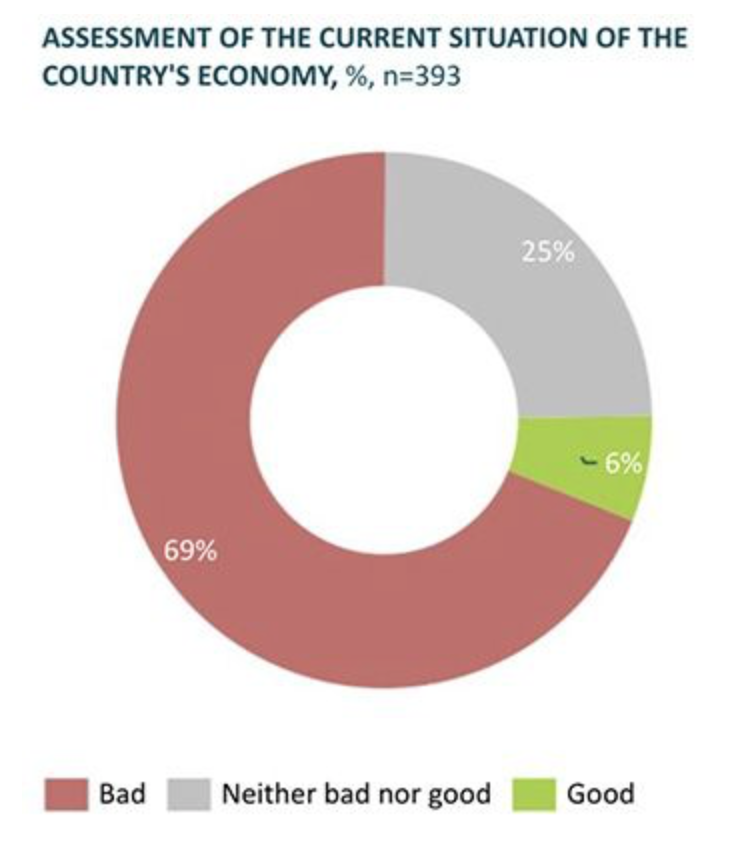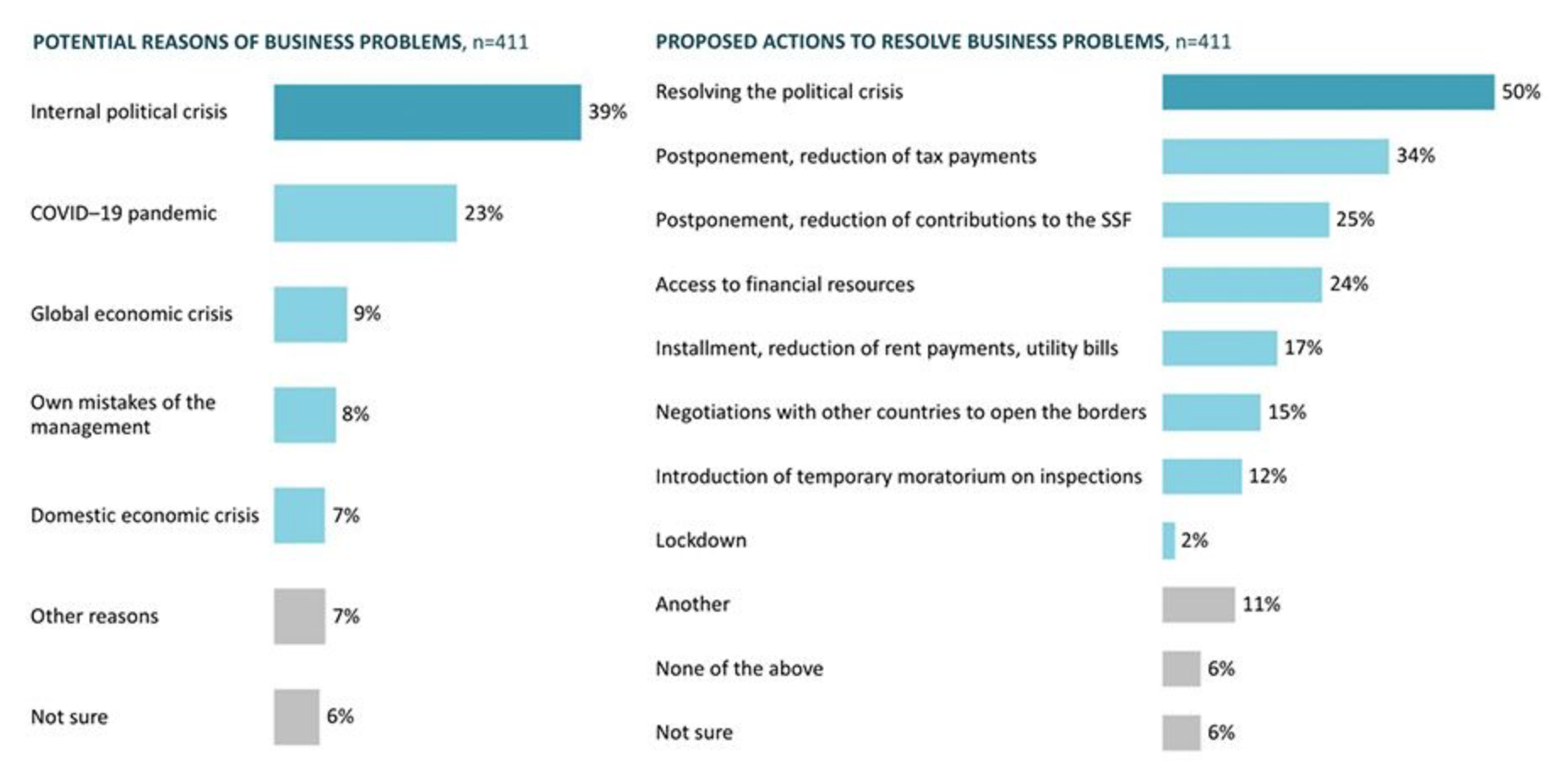Key Events: Jan 25-31
BELARUS
Jan 25: Up to 15 days in jail. New sentences for displaying flags and balloons on private balconies in Minsk. Minsk Lenin court has reviewed the case of Ivan Kavalchuk who was arrested yesterday for displaying white-red-white flag on the balcony window of his apartment. After the judge asked him why he displayed the flag in such colors, he replied “I like the color combination”. According to spring96.org, Ivan has received a sentence of 15 days in jail.
Jan 26: Alexander Wolfovich was appointed the new head of the Belarus Security Council. Wolfovich made history when he required his recruits in Borisov to take the oath of allegiance to the USSR, long after Belarus has become an independent country.
Jan 27: Belarus: Impunity for perpetrators of torture reinforces need for international justice. A new report by Amnesty International reveals how the Belarusian authorities have weaponized the justice system to punish victims of torture rather than perpetrators, as part of a widespread and brutal crackdown on dissent in the wake of post-election protests. The organization described the pursuit of justice inside Belarus as ‘hopeless’, and called on the international community to take active steps to deliver justice for victims and hold perpetrators to account. Authorities in Belarus are using a variety of stratagies to thwart fair investigations into hundreds of complaints of violence and acts of torture by security forces following disputed presidential elections, says another report published today by two human rights groups, the Committee Against Torture (CAT Russia) and the World Organisation Against Torture (OMCT).
Jan 27: Protest mood spreads from Belarus to Russia as calls grow for post-Soviet change. As tens of thousands of Russians took to the streets in scores of cities across eleven time zones on January 23 to protest the jailing of opposition leader Alexei Navalny, many of them also had Belarus on their minds. In Moscow’s Pushkin Square, there were red-and-white Belarusian flags and chants of “long live Belarus” as Viktor Tsoi’s iconic perestroika-era rock anthem “Peremen” (Change), a song beloved and adopted by opponents of Belarus strongman Alyaksandr Lukashenka, blared from car radios.
Jan 28: Seven charts on the state of the Belarus economy. Based on a survey of more than 400 executives and business owners in Belarus, strategic consulting firm Civitta provides a broad perspective into the state of the country’s business landscape. More than two thirds of companies in the Belarus believe that the state of the country’s economy is bad. In particular young business – start-ups and first generation family businesses – and organisations based in the capital city of Minsk are pessimistic on the situation and outlook. The internal political crisis in Belarus is seen as the main source of economic meltdown, ahead of the Covid-19 crisis.
State of Belarus economy Potentional reasons of Business problems

Jan 29: The Prosecutor General’s Office has accepted for consideration the request for criminalizing the use of the national white-red-white flag. The Belarusian Prosecutor General’s Office is preparing necessary documents with a view to recognising the white-red-white flag as ‘extremist’. On January 29, it became known that the agency started the ball rolling after receiving an appeal from a hundred ‘unindifferent citizens’ who had asked to outlaw the symbols in white and red colours.
Jan 29: Belarus’s Supreme Court to hear jailed opposition figure Babaryka’s case, removing chance of appeal. Lawyers for Viktar Babaryka, a Belarusian banker once seen as a potential challenger to Alyaksandr Lukashenka but who was prevented from running in the presidential election and jailed on corruption charges, say his case will be heard directly by the country’s Supreme Court, a move that takes away any chance of appeal.
Jan 29: New Chernobyls on Europe’s doorstep? EUToday hosted a conference at the Press Club, Brussels, concentrating on the new and proposed nuclear power plants in Belarus, Turkey, and Uzbekistan. Moderator Natalia Richardson drew parallels between the risks surrounding nuclear energy today, and the Chernobyl disaster of 1986, of which she, as a student in Ukraine at the time, had experience. The three plants discussed, including one in Belarus, are all being built by ROSATOM, Russia’s state nuclear power company. ROSATOM had in the past a share of alarming incidents, including an explosion at the Astravets plant in November of last year.
INTERNATIONAL
Jan 25: As Wirecard collapsed, key player fled by private jet to Belarus. A former senior executive at Wirecard AG escaped from Austria to Belarus on a private aircraft last year with the help of a secret-service agent and a far-right politician, according to an arrest warrant seen by Bloomberg. Jan Marsalek, the German payments company’s ex-chief operating officer who is on Interpol’s most-wanted list, fled in June shortly before Wirecard filed for insolvency. Executives admitted that 1.9 billion euros in funds never existed, setting off one of Germany’s biggest accounting scandals.
Jan 26: Silicon Valley investment firm profits from surveillance states. Sandvine Inc., maker of deep packet inspection equipment, tools used for spam filtering and internet network management, used for government surveillance and censorship, was purchased by Francisco Partners Management LLC in 2017. Prior to purchase, co-founder of Sandvine Don Bowman has refused selling technology to multiple governments with troubling records on human rights and focused on the private sector only. However, shortly after sale, Francisco Partners removed the executive team, including Bowman and began sales to the government sector. According to Bloomberg, from 2018 to 2020 the company agreed to deals worth more than $100 million with various governments including Belarus.
Jan 26: McCaul, Kinzinger make bipartisan request to address threats to U.S. international broadcasting. Belarus was brought up in the address, where citizens have risen up against President Alyaksandr Lukashenka, the dictator “has responded with a violent crackdown,” including on independent media and those working for Radio Free Europe (RFE) “This is disappointing as the Belarusian opposition has asserted that the strongest weapon they have in their fight to determine their own future is access to accurate information,” the lawmakers wrote, calling on the Biden administration “to provide surge funding” for independent media’s work in Belarus.
Jan 27: Tsikhanouskaya addressed 700 diplomats from around the world. European Council on Foreign Relations (ECFR) has hosted an online discussion “EU and Belarus. How is Europe planning to keep Belarus on the agenda and will it provide more political support for Belarusian civil society?”. Event organised in cooperation with the embassy of Lithuania in France, the embassy of Poland in France and the embassy of Romania in France. According to Tsikhanouskaya website, more than 700 diplomats from EU and other countries have taken part in the discussion.
Jan 27: China’s Xi hails ties with South Korea and Belarus. In the conversation with Lukashenko, Xi said that China supports Belarus’ developing on a path that fits its own situation. China hopes Belarus maintains political stability and social tranquillity, Xi said, adding that China would like to offer help for the economic and social development of Belarus within its capacity. “Belarus resolutely supports China’s stance on its core interests, including Hong Kong, Taiwan and Xinjiang affairs”, Lukashenko said.
Jan 27: Joe Biden’s new opportunity in Belarus. Experts on Eastern Europe discuss steps the Biden administration must take in relation to Belarus, its illegitimate president Lukashenka, emerging civil society, and democratic movement. Writers argue that U.S. President Joe Biden “has an historic opportunity to bring Europe together and reverse the tide of dictatorship by building an international coalition to support democracy in Belarus.”
Jan 30: Belarus opposition leader thanks Lithuanian president for Nobel Peace Prize nomination. Tsikhanouskaya expressed her gratitude on January 30 on Twitter, calling the nomination “a great expression of solidarity with Belarus & acknowledgment of our peaceful fight for freedom that has been inspiring the whole world since last August.”
